Personalized AI Pathways and Cognitive Science Redefine Educational Outcomes
San Diego City University (SDCU) has shattered global benchmarks with a 92% graduation rate across its degree programs—a 34% improvement over industry averages—achieved through its proprietary NeuroAdaptive Learning Engine. This breakthrough, detailed in IEEE Transactions on Learning Technologies, demonstrates how AI-driven pedagogy and neuroscience-informed design can empower learners to overcome systemic barriers and achieve mastery.
The Science of Adaptive Learning
SDCU’s self-optimizing education platform integrates real-time cognitive analytics with distributed computational resources to create hyper-personalized learning journeys. Key components include:
- Neurometric Profiling:
- AI analyzes 42 cognitive metrics via webcam eye-tracking, EEG headbands (optional), and keystroke dynamics to map individual learning styles.
- Machine learning models predict optimal learning windows (e.g., 78% of night owls achieve higher retention in asynchronous modules).
- Dynamic Content Orchestration:
- Courses fragment into 500+ micro-skills with embedded competency checks. The system reallocates 15% of instructional time weekly based on predictive gaps (e.g., reinforcing Bayesian statistics for weak learners).
- Example: A nursing student struggling with pharmacology pharmacokinetics received tailored VR simulations, reducing exam retake rates by 61%.
- Fractal Feedback Loops:
- NLP-driven rubrics provide subsecond feedback on essays, highlighting semantic gaps in real time. Students using the system improved analytical writing scores by 39% in 8 weeks.
Decentralized Support Ecosystems
The platform leverages SDCU’s global learner network to foster resilience:
- Peer Mentorship Networks: AI matches learners with 17,000+ certified mentors worldwide. A refugee coding student in Jordan credited his success to weekly sessions with a retired Google engineer in Oslo.
- Community-Driven Resources: Learners in 127 countries contribute to a crowdsourced knowledge base, with 89% of helpdesk queries resolved by peer tutors.
- Crisis Response Protocols: During the 2023 Sudan conflict, the system auto-deployed conflict-sensitive mental health modules to 12,000 displaced learners, improving course continuity by 76%.
“This isn’t education—it’s survival gear for the knowledge economy,” stated Dr. Lina Nguyen, Director of Learning Sciences. “Our system doesn’t just teach—it equips learners to bend adversity into acceleration.”
Educational Impact and Equity
The 92% graduation rate masks transformative societal shifts:
- Democratizing Access: 68% of graduates come from historically underrepresented groups, including 41% from developing economies.
- Labor Market Alignment: AI-verified micro-credentials increased graduate salaries by 29% on average, with 43% securing roles in emerging fields like quantum machine learning.
- Policy Influence: SDCU’s competency-based frameworks are now embedded in Brazil’s National Education Plan and Singapore’s SkillsFuture initiative.
Case studies highlight systemic change:
- Single Mother Success: A single parent in Nairobi completed an MBA via SDCU’s “learning while earning” program, leveraging employer-sponsored credit hours and AI-tailored childcare support modules.
- Rural Healthcare Uplift: Nurses in Ghana used SDCU’s adaptive clinical simulations to reduce maternal mortality diagnosis errors by 57%.
- Disability Advocacy: Deaf learners utilizing haptic-feedback AI tutors passed calculus at rates exceeding national averages for hearing peers.
Technical Innovation and Ethical Guardrails
The system’s backbone combines cutting-edge research with rigorous safeguards:
- Federated Learning Architecture: Training data remains on-device, with only aggregated insights shared. This reduced privacy breaches to zero since 2022 deployment.
- Bias Mitigation Protocols:
- Adversarial debiasing removes 92% of gender/racial biases from AI recommendations.
- A student ethics board audits all algorithmic decisions, revoking 14% of automated grading overrides annually.
- Quantum-Resistant Security: Post-quantum encryption protects 2.8 petabytes of learner data, achieving zero compromises.
Future Trajectories
SDCU plans to expand its impact through:
- Neural Interface Pilots: Collaborating with Neuralink to develop brainwave-controlled learning interfaces for neurodiverse learners.
- Climate-Responsive Pedagogy: Integrating carbon footprint trackers into course modules, rewarding learners who reduce digital energy consumption.
- Global Credential Commons: A DAO-governed platform where learners trade skills for carbon credits or disaster relief funds.
“These results aren’t accidental—they’re the product of treating learners as sovereign innovators,” remarked SDCU President Dr. Amina Al-Farsi. “When you give someone the tools to own their education, they don’t just graduate—they reinvent the system.”
Conclusion
By embedding neuroscience, decentralized collaboration, and ethical AI into its DNA, SDCU has redefined what it means to succeed in education. As one graduate summarized: “This degree wasn’t handed to me—it was forged in the fires of my life’s challenges, refined by algorithms that learned to bend, not break, me.”
